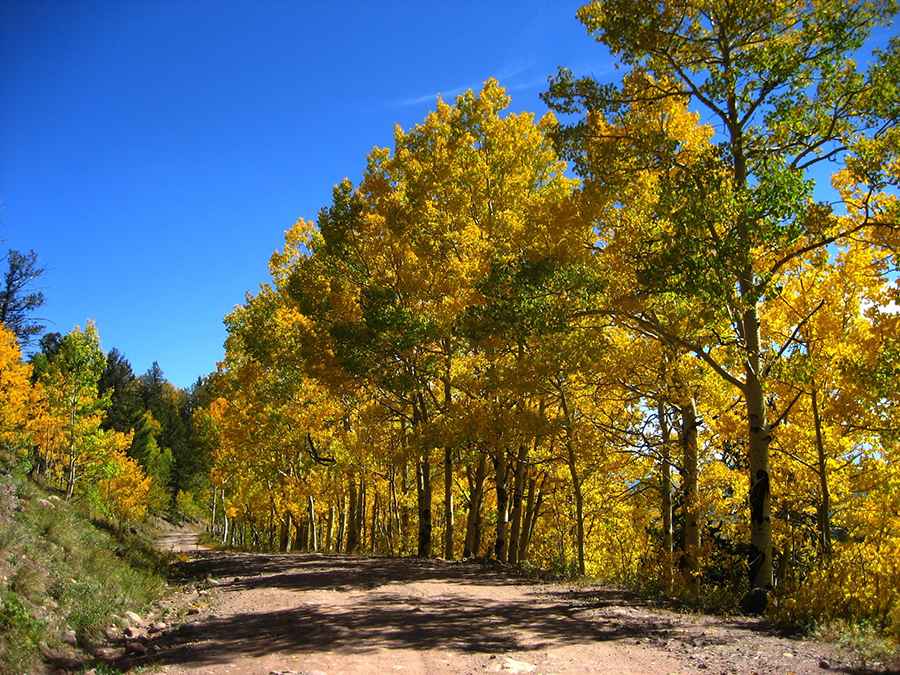A scenic unpaved road to Cordova Pass in southern Colorado
Cordova Pass is a high mountain pass at an elevation of 3.428m (11,248ft) above sea level, located in Huerfano County, in the US state of Colorado.

Why is it called Cordova Pass?
In 1934, the pass was named after Jose De Jesus Cordova, a man well known in this part of Colorado.
When was the road to Cordova Pass in Colorado built?
The road through the pass, formerly known as Apishapa Pass, is unpaved and was built in 1934.
Do I need a 4x4 to drive through Cordova Pass in Colorado?
Most of the time, the pass may be traversed by passenger vehicles, but the road has some good ruts from people driving through mud which can be difficult to avoid and maneuver in a low clearance 2WD vehicle. Near the summit there are a few potholes that are hard to see in shade and would be unpleasant to run through in a lower-clearance vehicle. However, it is not considered to be difficult for most drivers. If rain or snow is possible, 4WD is recommended.
Where does Cordova Pass start and end?
The road through the pass runs from near Gulnare, Colorado to the paved highway over Cuchara Pass. Coming in from Cuchara Pass (called FR364) it is rock and dirt and really not recommended for RV’s or long trailers. East of the pass the road (County Road 46) is worse until you reach the south end of the National Forest and it becomes a county road at Spanish Peaks Ranch.
Is Cordova Pass open?
Set high in the southern part of Colorado, east of the Culebra Range of the Sangre de Cristo Mountains, the road is normally not accessible from mid-November to late May. There is a parking lot with a fee station, restroom (sometimes closed) and picnic tables.
Is Cordova Pass in Colorado worth it?
Tucked away in San Isabel National Forest, just outside of the Spanish Peaks Wilderness, this remarkable road trip is pretty scenic. If you are coming from the east you will pass the Cordova Arch, also known as the Apishapa Arch, along the way which was built by the WPA back in the 1930’s or so in order to complete the road. The arch is a spectacular monument to the area that goes right through one of the igneous rock dike walls that radiate out from the Spanish Peaks.
Pic: Virgil Hammock